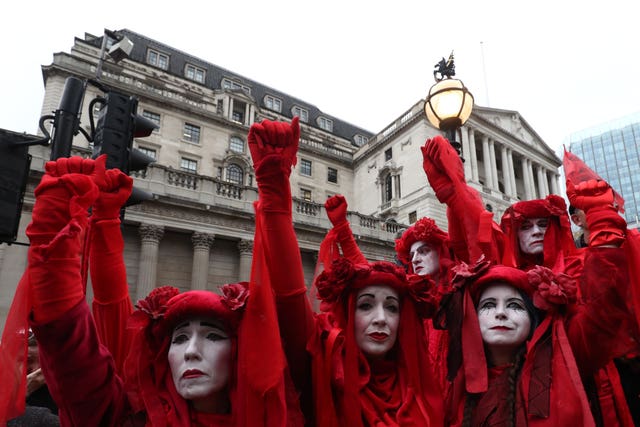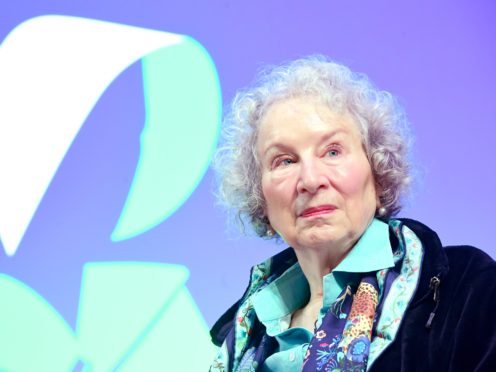Booker Prize-winner Margaret Atwood has said literary awards will be irrelevant unless action is taken over the environment.
The Canadian author was jointly awarded the prestigious prize for The Testaments, and wore the badge of Extinction Rebellion as she accepted the honour.
Activists for the environmental group have donned costumes appearing to reference the robes of women in The Handmaid’s Tale. The Testaments is the sequel to Atwood’s 1985 dystopian novel.
Showing solidarity in turn by wearing the protest group’s hourglass symbol, the veteran author said environmental crises will affect lives within a generation and has supported international calls for action.

She added that her own most recent literary honour – her second Booker Prize following a win for The Blind Assassin in 2000 – will be an irrelevance in a world riven by environmental problems.
Atwood, 79, said: “Extinction Rebellion? I’m very happy to see them show up after all these years.
“Because the biologists and people in the environmental field have been saying this for a very long time.
“It’s extremely pleasing to see these young people taking hold of that, understanding it, and pointing out that if people don’t fix this particular crisis, stuff like book prizes are going to become very very irrelevant, very quickly.
“This isn’t even a question of your grandchildren, it’s quite a distance away, it’s not even your children. It’s going to be you.”
Atwood was named the joint winner of the 2019 Booker Prize along with British author Bernardine Evaristo, who explored the lives of black women in her work Girl, Woman, Other.
With Bernadine Evaristo @TheBookerPrizes ., happy co-winners! pic.twitter.com/uq144cFIaN
— Margaret E. Atwood (@MargaretAtwood) October 14, 2019
The splitting of the prize represented a rebellion from judges, headed by Hay Festival founder Peter Florence, who broke the rules to divide the £50,000 award.
Evaristo has become the first black woman to be honoured with the Booker, and the judges’ decision thrust two female authors and their articulation of female struggles to the fore.
Atwood believes that while women may be afforded literary prizes, they are not extended the same privileges in wider society.
She said: “For women writers the chances are a lot better than they used to be.
“For women women, it depends where you are in the world, and it also depends where you are in the hierarchy within that part of the world.
“Obviously in places that chaotic and war-torn the chances are very bad. And for people at the lower end of the social scale they are getting worse, because the income gap is getting greater.”
The prolific author of more than 40 works, who began as a poet in the 1960s, Atwood believes her own fiction will inevitably reflect her social context and concerns, which has lead her to be popular symbolically within protest groups.
She said: “I think it’s circular. Art reflects life.
“No matter what you write, even if you’re writing about medieval Europe, you’re still writing in your own time.
“People see that reflection and they may pick up on it, but things come from reality first.”
Atwood said she did not need the money or attention of the Booker, and would be donating her £25,000 prize.
